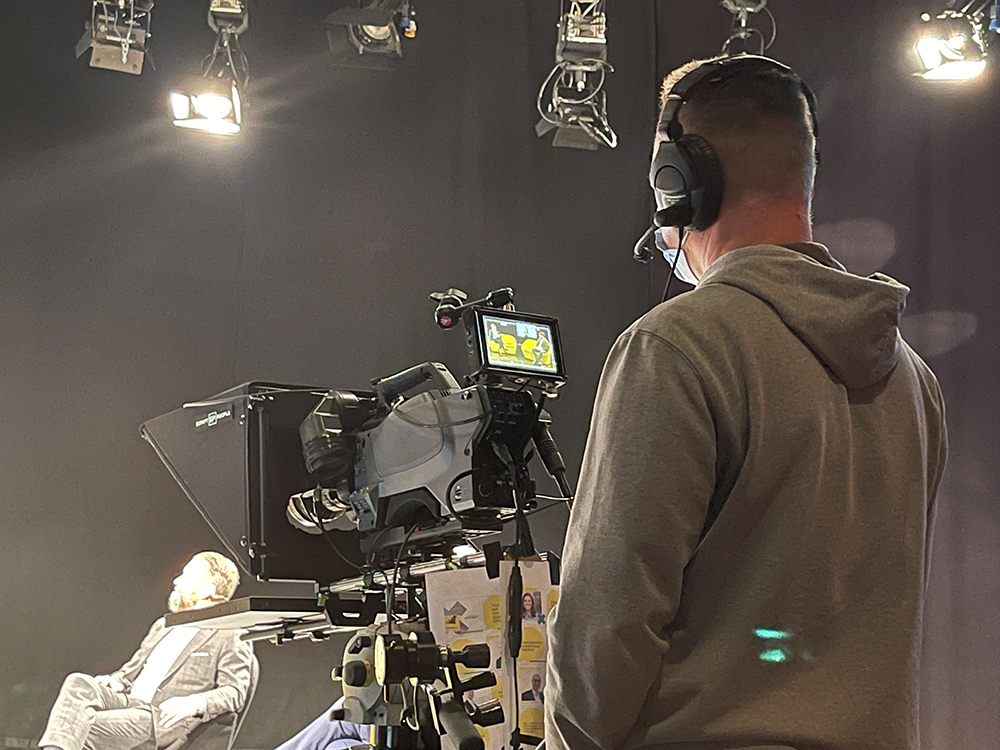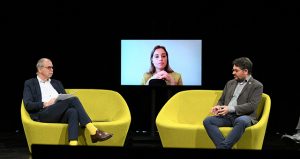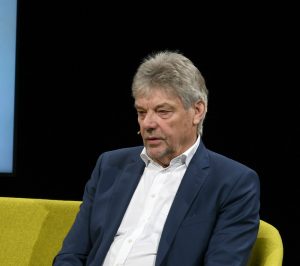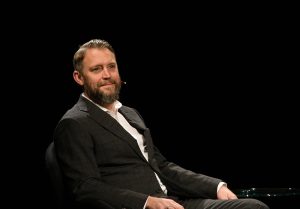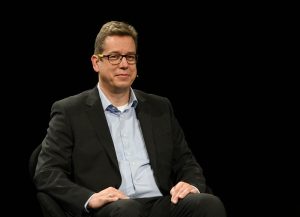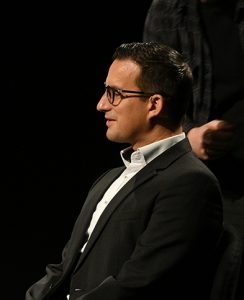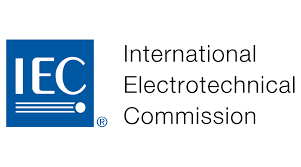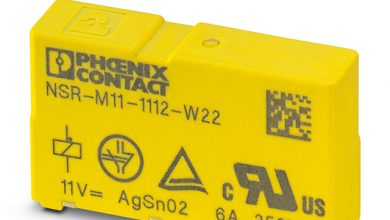When it comes to norms and standards, an intellectual flight reflex sets in for many people. Dry-as-dust subject matter, tedious maneuvering through a desert of letters, a jumble of abbreviations and details for nerds. But there is another way. The colleagues from the Phoenix Contact Competence Center Services recently demonstrated how on the Yellow Sofa.
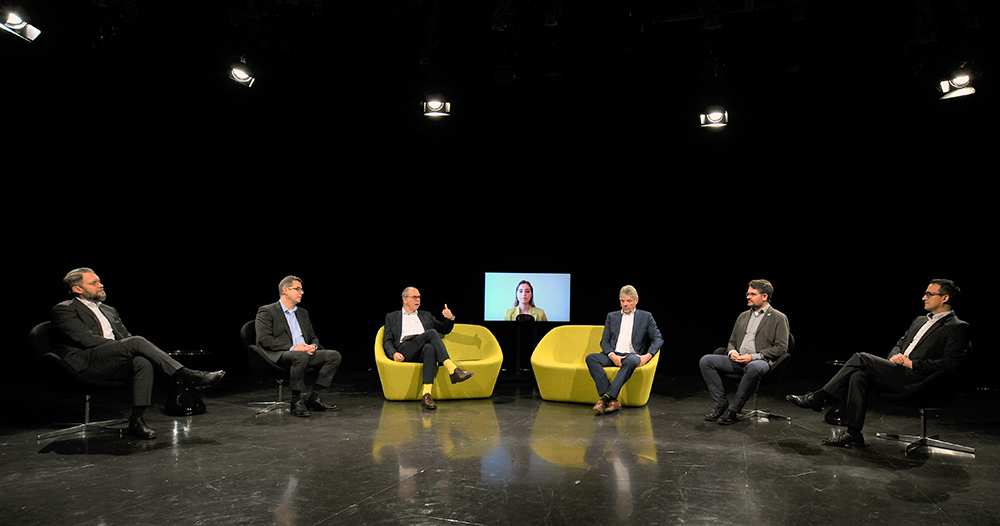
The upcoming new Machine Products Regulation of the European Union – whoever invites to such an initially unwieldy topic is bound to find himself in a small circle. Not so! More than 600 participants had registered for the first Safety Talk in mid-November. And around 500 interested people were permanently on site digitally and live when the colorfully leg-clad moderator Frank Knafla (Head of Business Development Building Technologies Phoenix Contact) invited his six studio guests to talk on the Yellow Sofa in the Media Hub of Messe Hannover.
What remains, what is new and what will become?
Because the topic of the kick-off event for the Safety and Security series of topics is obviously already burning under the nails of the mechanical engineering industry. This is despite the fact that the regulation is only available in its first drafts and will not actually be implemented until 2024. But machine builders cannot restructure their production within a few months, but rely on long-term planning.
As a representative of her industry, Dina Reit was online. The 29-year-old describes herself as the successor, the up-and-coming entrepreneur will perspectively take over the family-run machine manufacturer SK Laser. Initially, it fears frictional losses and uncertainties for its own company and the entire industry due to gray areas that leave room for interpretation within the wording of the new regulation.
As head of the Machinery/Fabrication Systems Competence Center of the German Employers’ Liability Insurance Association for Wood and Metal, Alois Hüning is familiar with the current Machinery Directive and its European revision in detail. He described why the new EU directive came about in the first place: “As part of a regular review in 2018, it was concluded that the current third version of the Machinery Directive needed a new version to make it fit for the future.” But the graduate engineer reassured: “There is really not very much that is new. What has been changed and supplemented is primarily the new area of AI, artificial intelligence, and security and safety software.” Whereby he also explained, “The inclusion of the topics of AI and software means that many machines fall under this regulation more quickly than before. Mid-sized machine builders need to pay attention to that.”
Bits and Bytes to Drill and Mill
Is software a component of a machine? What about the associated product liability? If anyone knows their stuff here, it’s Philipp Reusch, because the lawyer is a proven expert in product liability and product safety. “Now the operator is where the cybersecurity buck stops. This has shifted liability, away from manufacturers. Those who don’t adhere to defined patches, for example, are then responsible.”
The focus is increasingly shifting to the large topic area of security-relevant software and security. “If you can’t get it cybersecure, you can’t get it safe” was the clear statement of Jens Wiesner, who heads the “Referat Cyber-Sicherheit für industrielle Steuerungs- und Automatisierungssysteme im Bundesamt für Sicherheit in der Informationstechnik“. Constant new attacks from the sinister world of data pirates make people sensitive when it comes to linking the purely physical world of machines and their ever-expanding networking, automation and control.
If you can’t get it cybersecure, you can’t get it safe.
Jens Wiesner
Carsten Gregorius, Product Manager Safety Phoenix Contact Electronics, clearly calls out the challenges for all machine builders and also his own company: “The topic of cybersecurity is very present in the new standard and is the biggest chunk that machine builders and we as manufacturers of safety components have to swallow. At the same time, maximum security cannot always be the best security level, as operability must not be restricted.”
Torsten Gast, Head of Competence Center Services, Phoenix Contact Deutschland GmbH: “Cybersecurity is process-related, involving much more than just a few monitored access points or components. So far, only a few machine builders are on the road here, even if they know that this is an increasingly central topic for the future.”
No wonder that the talk on the Yellow Sofa was not just a single event, but the start of a whole series in which the topics will be dealt with in greater depth. Torsten Gast, the initiator of the Safety Talk, explains that there will be further workshops on the topics in the spring of 2022 in order to conduct more in-depth discussions with the machine manufacturers.
The interest is immense: More than 90 participants have already registered for the workshops.
And on safety.talk.de you can watch the recording and register for the free workshops.
Phoenix Contact Safety and Security Blog
